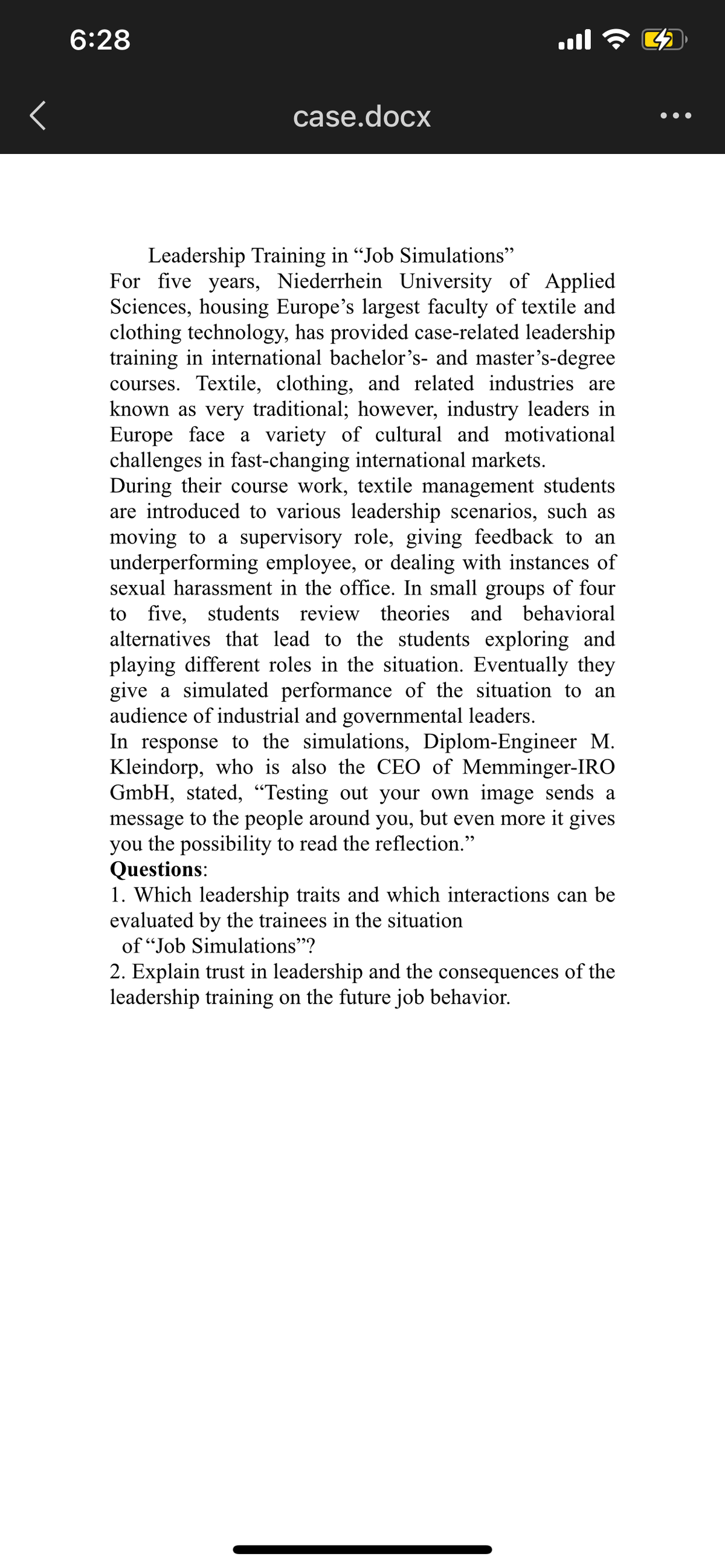Questions: 1. Which leadership traits and which interactions can be evaluated by the trainees in the situation of “Job Simulations"? 2. Explain trust in leadership and the consequences of the leadership training on the future job behavior.
Questions: 1. Which leadership traits and which interactions can be evaluated by the trainees in the situation of “Job Simulations"? 2. Explain trust in leadership and the consequences of the leadership training on the future job behavior.
Management, Loose-Leaf Version
13th Edition
ISBN:9781305969308
Author:Richard L. Daft
Publisher:Richard L. Daft
Chapter10: Designing Organization Structure
Section: Chapter Questions
Problem 3CFCA
Related questions
Question

Transcribed Image Text:6:28
case.docx
•••
Leadership Training in "Job Simulations"
For five years, Niederrhein University of Applied
Sciences, housing Europe's largest faculty of textile and
clothing technology, has provided case-related leadership
training in international bachelor's- and master's-degree
courses. Textile, clothing, and related industries are
known as very traditional; however, industry leaders in
Europe face a variety of cultural and motivational
challenges in fast-changing international markets.
During their course work, textile management students
are introduced to various leadership scenarios, such as
moving to a supervisory role, giving feedback to an
underperforming employee, or dealing with instances of
sexual harassment in the office. In small groups of four
to five, students review theories and behavioral
alternatives that lead to the students exploring and
playing different roles in the situation. Eventually they
give a simulated performance of the situation to an
audience of industrial and governmental leaders.
In response to the simulations, Diplom-Engineer M.
Kleindorp, who is also the CEO of Memminger-IRO
GmbH, stated, "Testing out your own image sends a
message to the people around you, but even more it gives
you the possibility to read the reflection."
Questions:
1. Which leadership traits and which interactions can be
evaluated by the trainees in the situation
of "Job Simulations"?
2. Explain trust in leadership and the consequences of the
leadership training on the future job behavior.
Expert Solution
This question has been solved!
Explore an expertly crafted, step-by-step solution for a thorough understanding of key concepts.
This is a popular solution!
Trending now
This is a popular solution!
Step by step
Solved in 3 steps

Knowledge Booster
Learn more about
Need a deep-dive on the concept behind this application? Look no further. Learn more about this topic, operations-management and related others by exploring similar questions and additional content below.Recommended textbooks for you

Management, Loose-Leaf Version
Management
ISBN:
9781305969308
Author:
Richard L. Daft
Publisher:
South-Western College Pub

Management, Loose-Leaf Version
Management
ISBN:
9781305969308
Author:
Richard L. Daft
Publisher:
South-Western College Pub